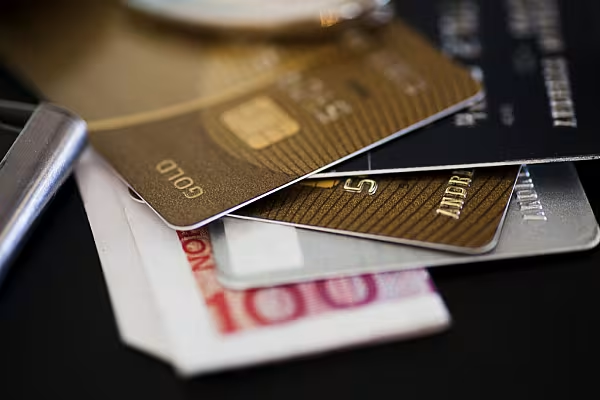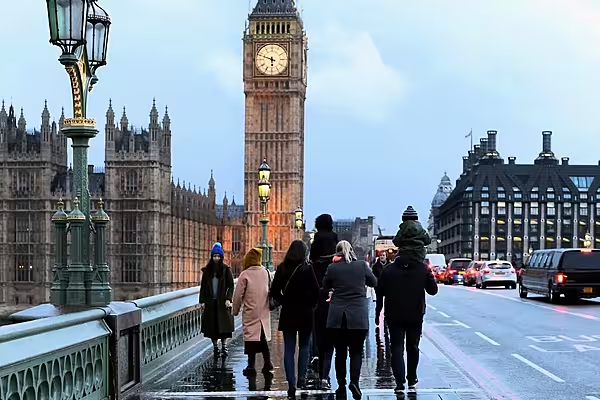The slow transition to chip credit cards by US retailers hasn’t gone unnoticed by criminals.
Counterfeit-card fraud will rise to $4.5 billion in 2016, up 12.5 per cent from last year, as crooks ramp up their thievery before all merchants and banks have moved to accept the more secure chip technology, said Julie Conroy, an analyst at financial-industry researcher Aite Group.
The theft is especially hurting retailers that hadn’t equipped their stores to accept chip cards by 1 October, when banks stopped footing the bill for fraud committed at non-compliant locations.
“There’s a fire sale, to try to burn through all of the stock of card data that they’ve seen,” Conroy said.
Criminals are using personal credit-card data stolen during previous breaches at Target Corp., Michaels Cos. Inc. and other retailers. The thieves can use the data to create fake plastic cards with magnetic stripes for shopping at bricks-and-mortar stores. Known in industry parlance as EMV, chip cards prevent such duplication, the primary reason for the switch.
Fees for fraudulent credit-card charges, called chargebacks, are hitting small and large retailers alike. Recognising the problem, Visa, Inc. changed its policies to offer some relief to merchants that haven’t yet installed new chip-card readers.
Nordstrom Hit
From October through February, fraud-related costs at Milam’s Markets and Grove Liquors in Florida have jumped by about $10,000, the companies said in a lawsuit. Milam’s operates four grocery stores in the Miami area, while Grove runs one liquor store.
Nordstrom, Inc., which operates 118 department stores and 200 Rack outlets, said in May that fraud chargebacks were “significantly higher than planned” because it completed rolling out chip-card equipment only in February. On 7 June, payment-terminals-maker VeriFone Systems, Inc. said that many retailers were “suffering” from chargebacks.
“We certainly got a good look at what the realities are,” said Carman Wenkoff, chief information and digital officer at a unit of Subway Restaurants, which will finish adding the technology to its US stores this month. “It’s been significant. It does not make sense to wait to instal. Every merchant should be thinking about how they should deploy EMV as soon as they can.”
He declined to disclose Subway’s chargeback costs.
Merchants that have implemented EMV have seen a reduction in fraud. In January, chip-enabled merchants tracked by Visa had seen a 26-per-cent year-over-year reduction in dollar volume of counterfeit fraud, the payments network said.
“The problem is, in most consumers’ wallets, there’s still a magnetic stripe,” said Kimberly Little Sutherland, a senior director at fraud-detection vendor LexisNexis Risk Solutions, Inc., “and those are targeted more heavily by the fraudsters. Now the focus on the fraudsters is totally going after those kinds of cards that do not have a chip.”
Visa, MasterCard
Many retailers that have wanted to implement chip acceptance faster couldn’t do so because of long lines to instal and certify the software and equipment needed to process chips. Many delayed implementing EMV until the last minute, or began making plans to adopt it only after being hit with chargebacks. Next week, MasterCard, Inc. will announce measures that will make it easier for retailers to get their equipment certified, according to Chiro Aikat, a senior vice-president at the company.
“It should cut it down to hours, not days or weeks,” he said.
Visa said that it was simplifying its equipment-certification process and changing its chargeback policies to reduce liability faced by merchants who haven’t yet moved to accept chip cards. Effective from 22 July, Visa will block all counterfeit-card chargebacks under $25, and starting in October, it will allow banks to charge back only ten counterfeit transactions per account, and will require them to assume liability for all transactions thereafter.
“These two changes together will significantly reduce the number of chargebacks that merchants are seeing,” Visa said in a statement. “Merchants can expect to see 40 per cent fewer counterfeit chargebacks, and a 15-per-cent reduction in US counterfeit-fraud dollars being charged back.”
To combat counterfeit fraud, more retailers need to instal and turn on new EMV equipment, and banks must issue more chip-based cards. Almost 70 per cent of US consumer credit cards now have chips, and 76 per cent of the 200 biggest merchants are able to accept them, according to MasterCard. Smaller merchants have been slower to migrate to EMV.
“It’s still in the early stages,” said MasterCard’s Aikat. “The tipping point is where 60 per cent of terminals are chip enabled. When you get to that tipping point, that’s when, on a market level, you see the benefits. We are not there yet.”
News by Bloomberg, edited by ESM. To subscribe to ESM: The European Supermarket Magazine, click here.














